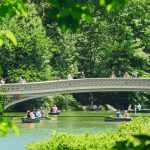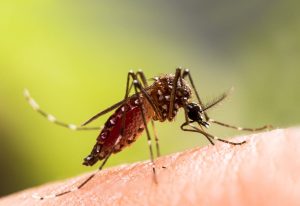Taking a stroll through a city park can give your mood a significant boost, but parks in some cities provide a bigger benefit than those in others, researchers say.
In a new study, investigators measured the happiness effect of city parks in the 25 most populous U.S. cities and found that it was roughly equal to the mood boost experienced on holidays like Thanksgiving or New Year’s Day.
“These new findings underscore just how essential nature is for our mental and physical health,” said Taylor Ricketts. He is director of the Gund Institute for Environment at the University of Vermont (UVM), in Burlington. “These results are especially timely given our increased reliance on urban natural areas during the COVID pandemic.”
For the study, the University of Vermont team analyzed 1.5 million Twitter posts in order to compare tweets posted inside and outside parks in the 25 cities.
“We understand the irony of using Twitter and technology to measure happiness from nature,” said lead study author Aaron Schwartz, who did the work as a doctoral student. “But our goal is to use technology for the greater good — to better understand the effect nature has on humans, which until now has been difficult to quantify in such large numbers.”
Significant happiness benefits from being in city parks were evident across all seasons, months, weeks, days and times of the day — not just weekends and summer holidays, according to the report published online March 30 in PLOS ONE.
Of the 25 cities studied, parks in Indianapolis; Austin, Texas; Los Angeles; Jacksonville, Fla.; and Chicago generated the most happiness, followed by Dallas; Memphis, Tenn.; Denver; New York City; San Diego; San Francisco; Philadelphia; Phoenix, Ariz.; San Jose, Calif.; Detroit; Seattle; San Antonio; Houston; Fort Worth, Texas; Washington, D.C.; Columbus, Ohio; Charlotte, N.C.; Boston; El Paso, Texas; and Baltimore.
Along with posting far happier tweets in parks — using words like “beautiful,” “fun” and “amazing” — people in parks in the top-ranked cities used significantly fewer negative words such as “hate,” “don’t” and “not.”
The researchers also found that the happiness benefit was highest in parks over 100 acres in size, followed by parks one to 10 acres in size.
“Being in nature offers restorative benefits not available for purchase in a store, or downloadable on a screen,” said UVM mathematics professor Chris Danforth. “However, not all parks appear to be equal when it comes to happiness. The ability to immerse yourself in a larger, greener natural area had a greater effect than smaller paved city parks.”
The study authors were surprised by several of the top-ranked cities in the study, including Indianapolis, Austin, Texas; and Jacksonville, Fla., which have lower per capita funding for parks compared to some other cities on the list.
More information
The National Recreation and Park Association has more on the benefits of green space.
SOURCE: University of Vermont, news release, March 30, 2022
Source: HealthDay
Copyright © 2024 HealthDay. All rights reserved.

-300x200.jpeg)









-300x241.jpeg)




